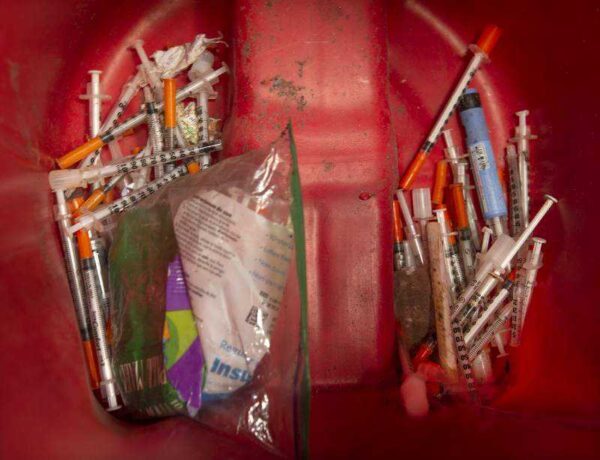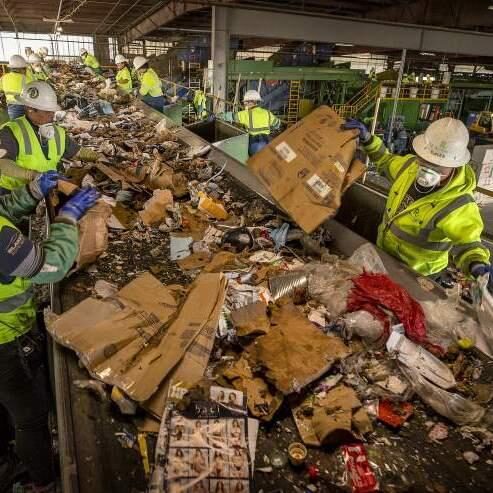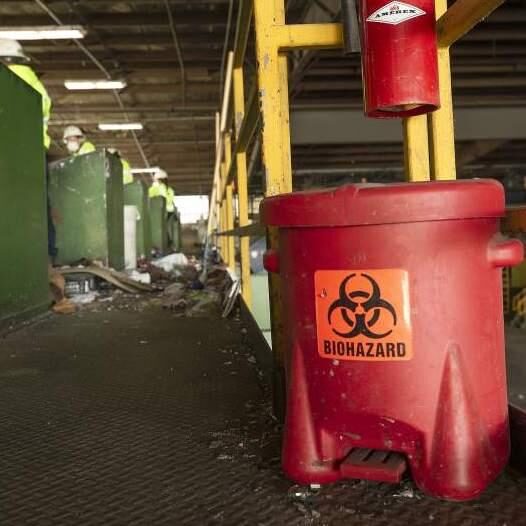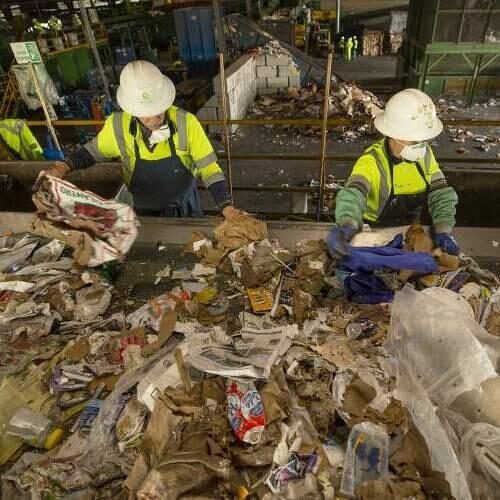Joseph Essig has encountered more hypodermic needles on the sorting line at Recology Sonoma Marin than at any other recycling center he has managed in previous years. So many, in fact, that the number of needles he’s seen is too hard to quantify.
On heavier days, sorters count hundreds of needles passing through the lines in a single shift. In one particularly bad period last year, he said his team was filling 50-gallon containers of hypodermic needles every six or seven weeks.
Not only is the exposure to needles dangerous to the health of workers, Essig said it is also costly and time consuming. The sorting line is immediately shut down each time a needle is spotted, he said, stopping the work flow. For every hour work is stalled, it costs $600, the company estimates.
“It was getting to the point where we were seeing needles nightly,” said Essig, the company’s operations manager.
Recology officials say too many people are using recycling bins to dispose of used needles and other “sharps” — medical devices designed to pierce the skin, like syringes, lancets and pen injectors.

John Burgess/The Press Democrat
It is a dangerous problem for the workers who use their hands to sort waste placed in the blue recycling bins. Most people do not realize that there are humans touching their recyclables to prevent them from going into the landfill, said Celia Furber, Recology’s waste zero manager.
“Whatever people put in recycling bins, we have human sorters sifting through all of it,” Furber said. “They are extremely hazardous to workers.”
To reduce the number of needles winding up in the county’s recycling centers, leaders in the waste management and recycling fields have renewed efforts to educate residents on what they can — and cannot — recycle. Recology has also strengthened training programs for employees who regularly encounter needles and other sharps on the sorting line.



John Burgess/The Press Democrat
The problem has drawn attention at the state level.
A law signed by then-Gov. Jerry Brown in September is the first in the nation that will put the responsibility on manufacturing companies for the safe disposal of hypodermic needles and other sharps waste.
The bill, which goes into effect in 2021, requires needles and sharps producers to establish, fund and promote statewide take-back options for users.
Heidi Sanborn, a senior advisor at the California Product Stewardship Council in Sacramento, worked with local governments across the state for over a decade to get the law passed. The council works with cities to tackle waste management and recycling issues.
“The fact that it is 2019 and people are still getting stabbed on the sorting line needs to stop, which is why this bill is so important,” Sanborn said.
But until the law goes into effect, the burden of handling needle waste will continue to fall largely on local recycling centers and individuals.
There are three local drop-off locations listed on the Sonoma County Waste Management website where people can dispose of needles in hazardous sharps containers.
Residents can also search for additional drop-off locations by ZIP code on the website Safe Needle Disposal, but there are still only 16 areas listed within a 50-mile radius of Santa Rosa, some as far away as Vallejo, and many of which are available by appointment only.